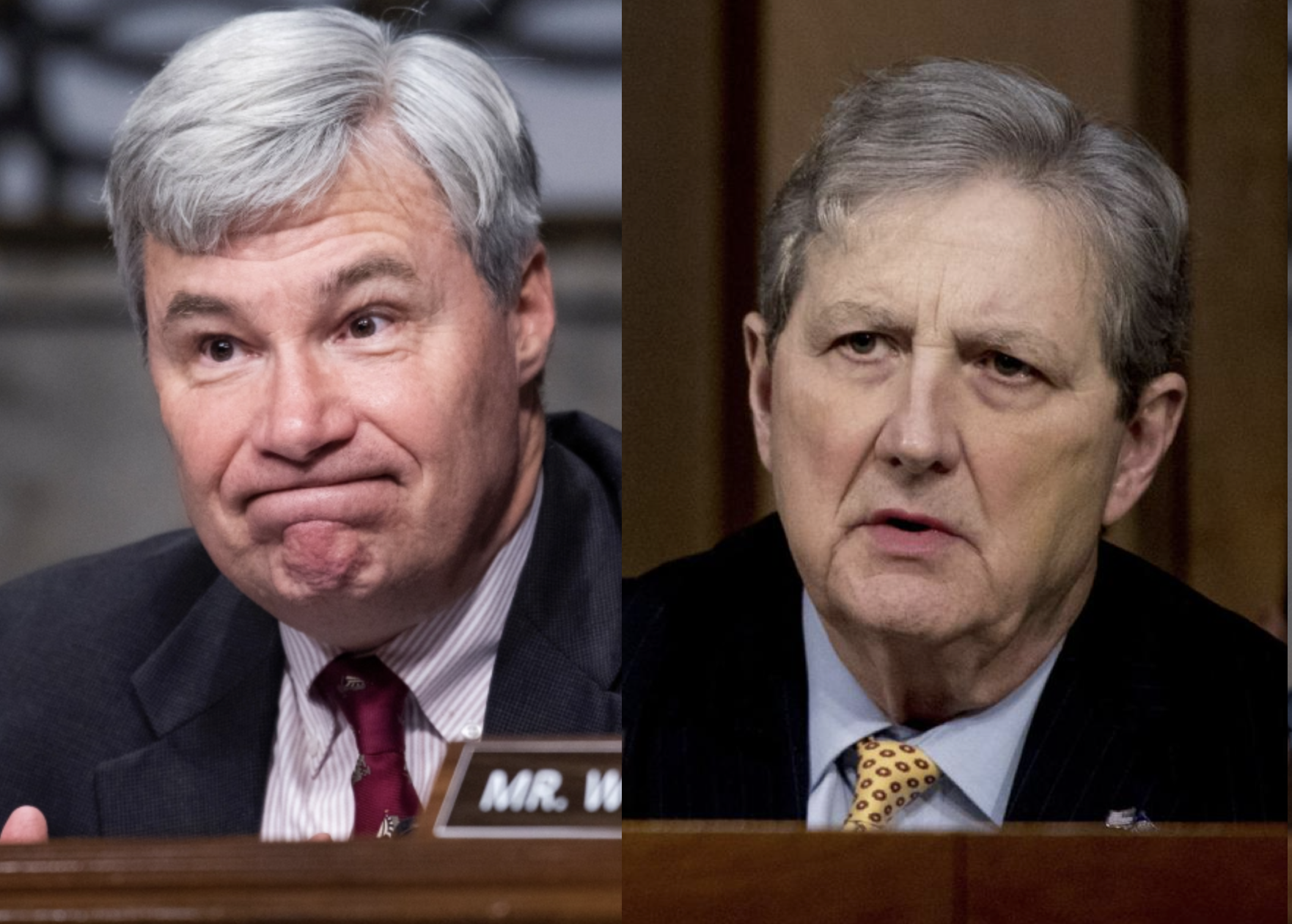Sens. Whitehouse and Kennedy Write the U.S. Marshals Service for Information on the Justices’ Travel
Will likely not have to sue for it like we did (twice)
 NOT THE U.S. VIRGIN ISLANDS — Fix the Court is encouraged by a letter written by Sens. Whitehouse and Kennedy that asks for a detailed accounting of Supreme Court justices’ U.S. Marshals-accompanied travel over the last 10 years as a means of shedding light on the perks the nine enjoy.
NOT THE U.S. VIRGIN ISLANDS — Fix the Court is encouraged by a letter written by Sens. Whitehouse and Kennedy that asks for a detailed accounting of Supreme Court justices’ U.S. Marshals-accompanied travel over the last 10 years as a means of shedding light on the perks the nine enjoy.
While in Washington, the justices are guarded by the Supreme Court Police but do not have a dedicated out-of-D.C. detail like the Secret Service, so they may request USMS coverage when they travel domestically, though they’re not required to. (The Marshal of the Supreme Court coordinates security for international travel with other agencies.)
The justices are supposed to report their reimbursed trips on their annual financial disclosure reports, but they’ve been known to leave some off — FTC found two such errors last year — so receiving USMS reports offers an added layer of accountability. And though the justices’ names are typically redacted from these reports, it’s fairly easy to figure out who’s going where, thanks in large part to media coverage and SCOTUSMap.
It’s true that some of the trips in the USMS reports are paid for by the justices themselves, meaning they don’t need to be included in the disclosures. But since public money is being used for security, we believe there is value to learning about all them.
“I’m pleased to be joined in my quest for more information on the justices’ travel by two U.S. senators, one from each party.” FTC’s Gabe Roth said. “Accountability should be a bipartisan interest, and it’s my hope that this request, coupled with subsequent legislation, compels the justices to be more thorough when filling out their disclosures.”
New revelations on justices’ trips (all documents here):
Via FOIA and litigation, FTC has obtained more than 4,000 pages detailing justices’ summer 2015 and FY16-17 travel. We learned that in Feb. 2017 Justice Sotomayor (p. 71) visited the U.S. Virgin Islands — deputy marshal(s) from N.D. Ill. in tow for some reason — where she was the featured guest at two events hosted by D.C.V.l. This trip was not included in her disclosure, either indicating an oversight or that she footed the bill herself.
Also not on Sotomayor’s disclosure but noted in USMS documents (p. 163) was a planned trip through the South in Sept. 2017 to speak to students at the Alabama School of Law, Emory University School of Law and Clemson University. Sotomayor’s flight to Alabama was supposed to be via “private jet,” but due to weather flights were cancelled, and so were her Alabama and Emory events. Also potentially flying with class: Justice Thomas, whose trip to Michigan in May 2016 to speak at Hillsdale College commencement occurred via “private aircraft,” and this mystery justice, unconfirmed due to redactions. Justice Alito’s Feb. 2017 trip to New Mexico, reimbursed by the local Inn of Court chapter, to speak at a FedSoc/FBA event, included a “TBD private plane” (p. 145).
Our FOIAs show the justices taking advantage of the personal hospitality exemption, where the cost of transportation, meals, lodging and gifts need not be reported if they were paid by certain friends or relatives. A Justice Ginsburg July 2015 stay in Western Massachusetts seems to fall into that category, as does Justice Sotomayor’s tickets to a preview of “Hamilton,” neither of which shows up in their disclosures. The Whitehouse-Kennedy letter decries the breadth of this exemption.
Background on FTC’s FOIA lawsuits:
Shortly after Justice Scalia died, FTC submitted a FOIA request to the U.S. Marshals Service asking for information about his ultimate trip to Marfa, Tex., as it was reported that Scalia had no security protection and it took several hours for officials to reach him and confirm his passing. FTC also requested a list of USMS-accompanied trips of a particularly busy travel month for the nine, July 2015. After not receiving a response for more than a year, FTC filed suit in Oct. 2017. We reached an agreement in Mar. 2018, and the 380 pages we received confirmed the lack of protection and protracted timeline.
A year later, we asked for details on the justices’ USMS-accompanied FY16 and FY17 travel, and following another FOIA lawsuit, we received about 4,000 pages of documents, the last of which arrived on Apr. 10, 2021.